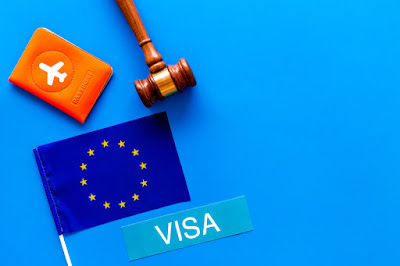Schengen Simplified: The Ins and Outs of the 90/180 Rule for Your European Adventure
The Schengen legislation can be somewhat complex since it differs not only by the European country you are visiting but also by the country where you hold residency. Specific non-EU nations have various accords with the European Union regarding Schengen visas, which provide more flexibility for work-related trips versus tourist journeys. To keep things straightforward, we will concentrate on the different Schengen visa such as the Schengen tourist visas for Germany and how the Schengen rules apply to United States citizens travelling in Europe for prolonged periods.
Defining Schengen Visa
The Schengen visa put simply is a tourist visa with 90 days validity within Schengen Area that comprises Croatia, Belgium, Austria, Czechia, Sweden, Denmark, Estonia, France, Iceland, Hungary, Finland, Greece, Germany, Italy, Lithuania, Liechtenstein, Latvia, Luxembourg, Malta, Netherlands, Poland, Portugal, Slovakia, Norway, Slovenia, Spain, and Switzerland. Few microstates are basically Schengen Area’s members, although not official members. These microstates are Monaco, San Marino, and Vatican City. They participate in the Schengen Area in practice, even though they are not formally included.
Schengen 90/180 Rule
What is the Schengen 90 180 day rule? As per the Schengen rules, those who are not European Economic Area countries citizens can only live in Schengen countries 90 days maximum out of the 180-day phase sans getting a visa. Also, after you have utilized your 90 days, you are forbidden to return to the Schengen area till another 90 days indeed have gone by ever since you left.
The 90 180-day rule in Schengen limits the stay period for all the non-European Economic Area (EEA) citizens. After the UK departed EU on January 1, 2021, this regulation currently applies to British nationals too. Prior to Brexit, UK citizens could enter freely and remain indefinitely in the other EU member states. Ever since the UK withdrew formally from EU on December 31, 2020, the Brits have turned into the 3rd-country nationals across Spain as well as the Schengen zone in its entirety. As a result, they must now follow the same visa and length of stay requirements as those from North America, Australia, Japan, and other non-EU nations.
How to Count the 90-Day Schengen Visa?
While travelling to Schengen Area, there are several crucial points to consider. You are just permitted to be in the Schengen Area for about 90 days from the 180-day period. 180 days are in fact counted backwards commencing from either the 1st day you entered Schengen Area, should you still be there, or the last day that you were in Schengen Area before exiting. It indicates the 180-day period gets calculated resting on your recent entry/exit date.
90/180 Rule Flexibility
A perk worth mentioning about the 90/180 rule is it paves the way for adaptability. As opposed to other visa types which have a set time, the 90/180 rule permits you to choose when & how you desire to use your permitted days within the Schengen area.
Consequences of Overstaying a Schengen Visa
It is crucial to be aware of the repercussions of remaining in the Schengen area past the validity of your Schengen transit visa.
Possible Ramifications:
- Legal repercussions- You may face legal action for overstaying.
- Financial penalties- You may have to pay fines for overstaying your visa.
- Limitations on future entry- Overstaying may lead to future difficulties or inability to obtain a Schengen visa.
Tips and Tricks to Extend Schengen Visa
Some effective tips to extend Schengen visa comprise,
- Begin the process of extending your current visa well before it expires.
- Schengen countries typically only grant visa extensions for certain reasons, such as medical emergencies, humanitarian causes, or unavoidable circumstances. Make sure your reason for requesting an extension falls into one of these accepted categories.
- Provide detailed documentation to support your extension request.
- Keep valid travel insurance that covers the entire extended stay period.
- Show that you have the financial resources to support yourself during the prolonged stay.
- Fill out the visa extension application form fully and accurately.
- Get acquainted with the precise rules & regulations of Schengen country where you apply for the extension.
- Include a detailed schedule of your extended stay, outlining where you will stay, the purpose of your visit, and any other relevant information.
Schengen visa rules keep changing from time to time. For instance as per the latest Germany visa updates, there will be a reception of documents in the English language without the requirement for translation. Therefore, it is very important to check the most recent information with the appropriate authorities before you arrange your journey.




Comments
Post a Comment